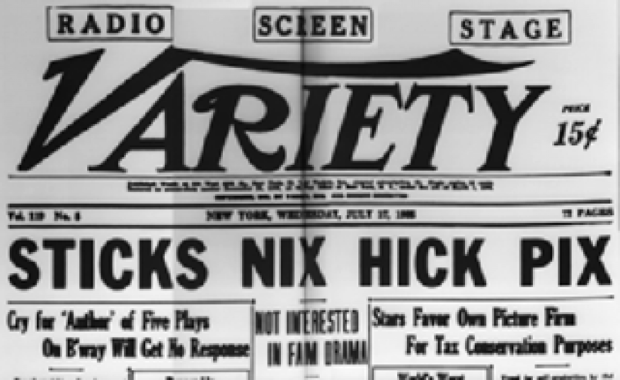“LIMEY PROF. TO DOPE YANK TALK,” runs part of a headline in the October 18, 1924, issue of the Chicago Daily Tribune. The “limey” (= “English”) professor was in fact a Scotsman, Sir William Craigie, then editor of the Oxford English Dictionary, and he had been hired by the University of Chicago to co-edit, with James Hulbert, a projected new Dictionary of American English. Fourteen years later its four volumes appeared. Among the Americanisms “doped” therein is “sticks,” in the sense “backwoods.” Some later authorities have dated this usage to Kentucky in the 1800s, when extensive logging was going on, others to the turn of the twentieth century, but all agree that “sticks” refers to tree trunks, logs, woods, hence forested backcountry with primitive cabins, outhouses, dirt roads and other evidences of nonurban living. In The American Language H. L. Mencken observes that for theater people, any place outside New York City constitutes “the sticks.”
“Sticks” has plenty of slangy semantic company, not just “backwoods” but “boondocks,” a term of considerable interest since according to the OED it is the only English word derived from Tagalog, one of the main indigenous languages of the Philippines; there bundok means “mountain.” In World War II American soldiers in the Philippines dubbed the rough backwoodsy country they were fighting through “the boondocks.” “To boondock” now means to camp without electrical or water hook-ups, off the grid; according to some authorities, it also means “to make love in a car.” Meanwhile, as teenagers going to high school in northern California, my friends and I used a different term to refer, scornfully, of course, to where hicks came from: “the tules,” alluding to the tule plants or bulrushes growing thickly in the local backwater, the flatlands of the Sacramento River delta.
If “sticks” has nevertheless stuck, has remained the most popular slang synonym for the backcountry, it might have something to do with a single famous appearance of the term. In 1935 the show-biz magazine Variety printed an article reporting that, contrary to what might have been expected, rural Americans did not especially want to see movies about themselves. Here’s the article’s headline, even more than “LIMEY PROF. TO DOPE YANK TALK” a virtuosic expression of the headline-writer’s art:

Source: www.stltoday.com